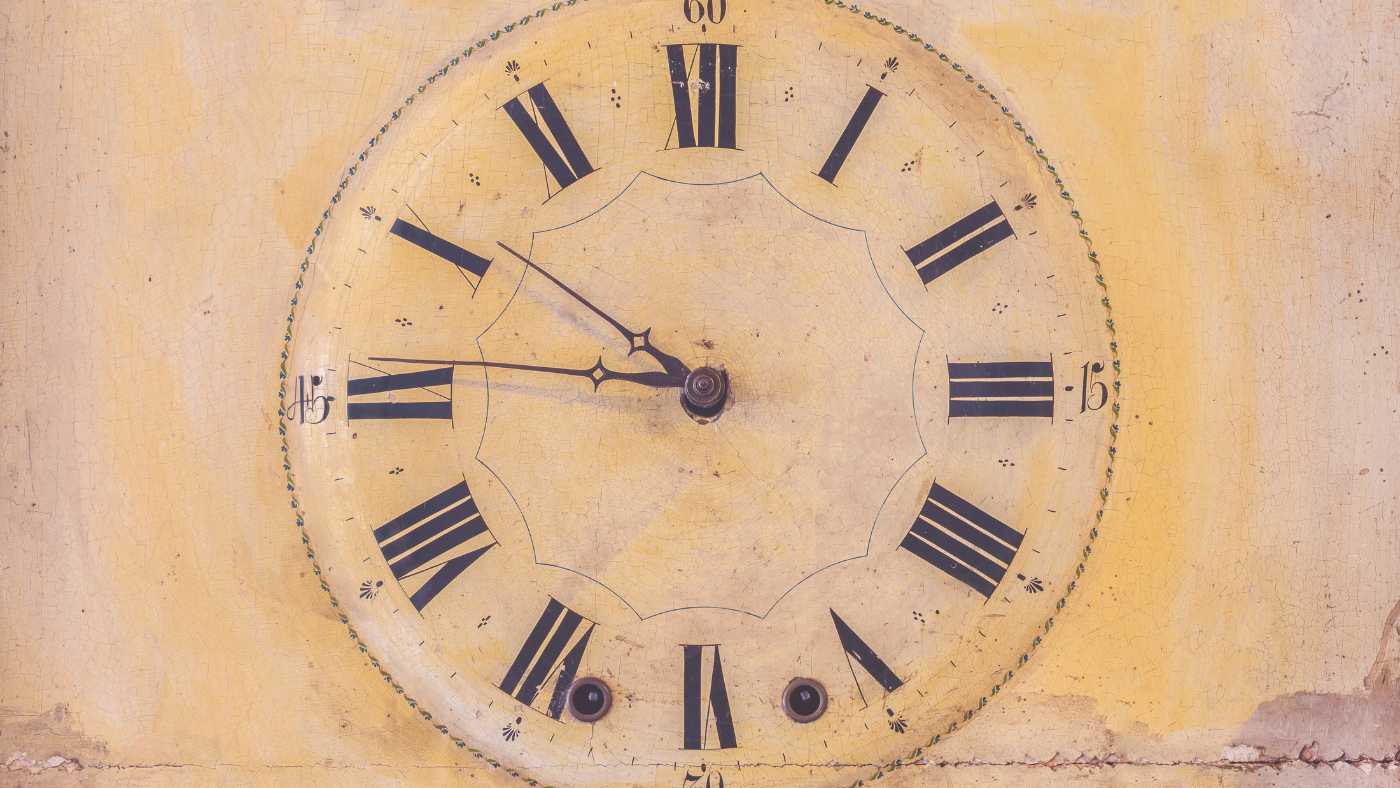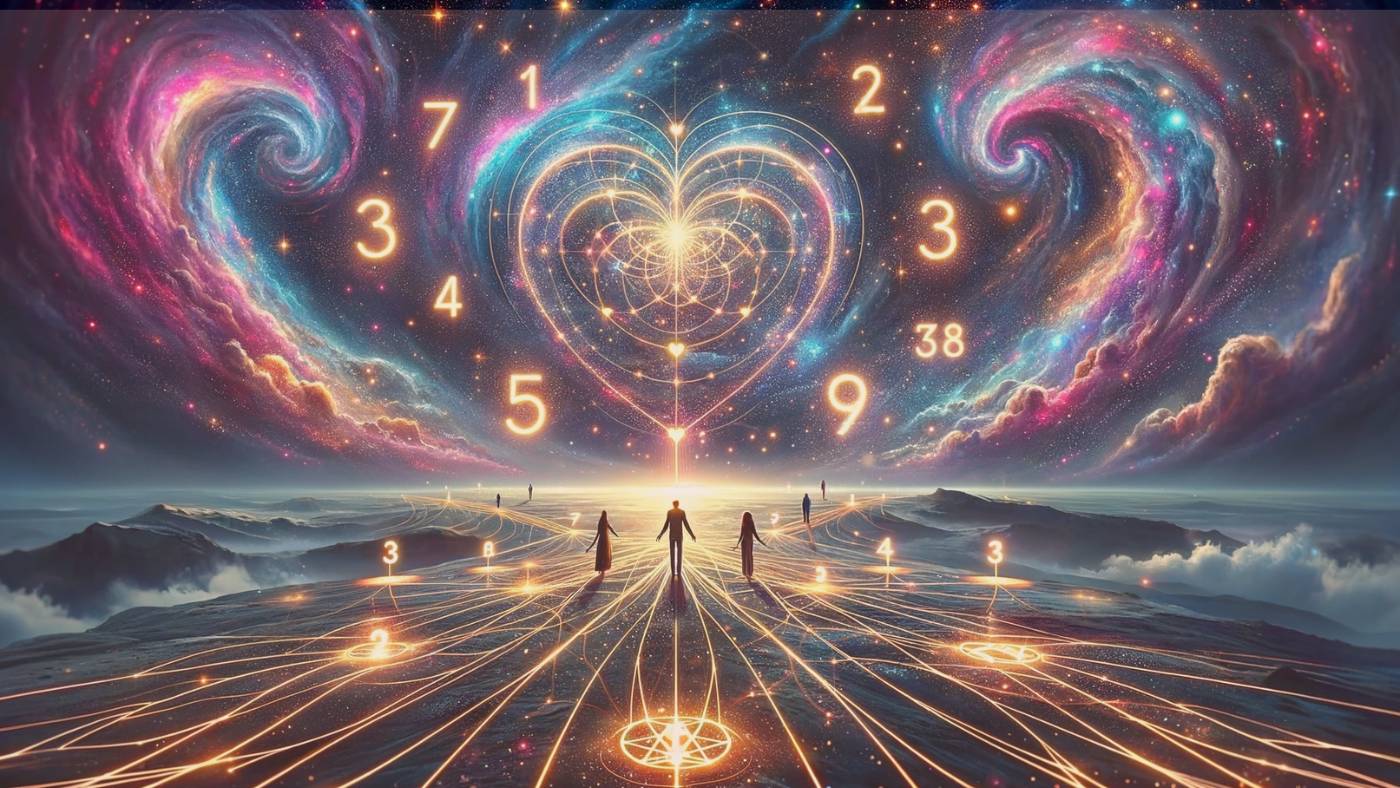Imagine standing under the vast, starlit sky of ancient Egypt. The story of Osiris, the god of the afterlife, unfolds somewhere. In this myth, Osiris is betrayed and dismembered into 14 pieces by his brother Set, symbolizing a mystical connection with the number seven and its multiples. This story is more than a captivating tale; it encapsulates the Egyptians’ profound reverence for numbers, a reverence that mirrors the essence of History and Origins of Numerology.
The journey into the History of Numerology begins in the cradle of ancient civilizations. From the mystical chambers of Egypt, where stories like that of Osiris lend symbolic importance to numbers, to the philosophical halls of Greece, numerology has been an integral part of human history. Its origins are found in an era where numbers were not mere tools for counting but sacred symbols, embodying deep cosmic meanings.
Ancient Texts and Numerology’s Beginnings
Several ancient texts provide evidence of numerology’s early use. For instance, the “I Ching” or “Book of Changes” in Chinese culture is an ancient divination text that reflects early numerological ideas. Similarly, in Babylonian and Egyptian civilizations, astrologers and architects applied numerological principles in astrological readings and architectural designs, as evidenced in texts like the “Enuma Anu Enlil” and the mathematical papyri of Egypt.
Greek philosophy, especially the works of Pythagoras, played a crucial role in the development of numerological concepts. However, texts by Pythagoras’ disciples and later philosophers document his belief in the divine nature of numbers. His teachings suggest that numbers held mystical significance and were fundamental to understanding the universe.
Influence on Cultures and Practices
Numerology’s integration into various cultural practices, such as tarot reading in the Philippines (tarotPH), illustrates its enduring influence. The blending of numerological principles in these practices, as referenced in local cultural texts, showcases its adaptability and relevance across different societies and epochs.
1. Babylonian Culture
In ancient Babylon, numerologists intertwined numerology with astrology, using numerological concepts to interpret celestial events and omens, which played a significant role in their astrological practices.
Babylonian astrology, emerging around the 2nd millennium BCE, involved systematic observations of celestial bodies and the development of the zodiac. Additionally, the “Enuma Anu Enlil,” a series of clay tablets, contained omens and observations related to celestial phenomena used by Babylonian priests for predictions.
2. Egyptian Culture
Egyptians used numerology in the design and construction of their architectural wonders, like pyramids. Numbers held sacred and mystical significance, often linked to their gods and cosmology.
They placed mystical significance on numbers, particularly in religious beliefs and architecture. The number three, for instance, was significant in Egyptian mythology, representing concepts like the natural environment and the divine. The number seven was important in magic and rituals, often used in spells and religious observances.
3. Chinese Culture
Chinese numerology, deeply rooted in traditions, remains prevalent today. Additionally, it actively focuses on determining the auspiciousness or inauspiciousness of numbers and is commonly used in selecting lucky days, years, and addresses.
Chinese numerology is based on the belief that certain numbers are associated with good or evil. Additionally, this belief influences various aspects of life, including business names and personal decisions. In Chinese numerology, people associate the number eight with prosperity and often seek it for personal identifiers like license plates, exemplifying its significance.
4. Greek Culture
Greek numerology, greatly influenced by the philosopher Pythagoras, viewed numbers as fundamental to understanding the universe. It was used in various fields from music to astronomy.
In ancient Greece, numerology was intertwined with philosophy and mythology. The Greeks developed sophisticated numerological systems like Pythagorean and Chaldean numerology. Moreover, numbers held symbolic meanings, with specific numbers like three and twelve playing significant roles in Greek myths and tales.
5. Hebrew Culture
In Hebrew culture, Gematria, the form of numerology, assigns numerical values to the letters of the Hebrew alphabet, and scholars actively use it in mystical and theological studies for interpreting religious texts.
Gematria is a Hebrew numerological system where letters correspond to numbers, used for biblical interpretation. Additionally, this system was crucial to Kabbalah, the Jewish mystical tradition. Believers held that God created the universe through the power of Hebrew letters and their numerical values.
6. Indian Culture
Indian numerology, or Vedic numerology, is integral to various spiritual practices. People consider numbers to have spiritual significance and use them to understand one’s life path and destiny.
Vedic numerology, rooted in the Ancient Indian Vedas, is one of the oldest forms of numerology. Moreover, It is based on the idea that everything in the material world is influenced by the nine planets. Vedic numerology considers the influence of planets on a person’s life and personality, and its practice involves studying the resonance between actions and individual numbers.
7. Roman Culture
Romans used numerology primarily for divination and interpreting omens. They believed that numbers could provide insight into the will of the gods.
While specific examples of numerology in Roman culture are scarce, the Romans, like many ancient civilizations, practiced gematria. This practice of assigning numerical values to words and names, infused with religious meaning, dates back to antiquity. In the 8th century BC, Sargon II commissioned an Assyrian inscription that exemplified the deliberate design of Khorsabad’s wall length to correspond with the numerical value of his name.
8. Japanese Culture
Like Chinese numerology, the Japanese have specific superstitions and beliefs regarding numbers, often associated with good or bad fortune.
Numerology in Japan is intertwined with the belief in spiritual forces and the concept of “Onmyodo.” This traditional Japanese esoteric cosmology combines astrology, astronomy, and divination. During the Heian period (794-1185), practitioners used numerology to determine auspicious dates for events like weddings and coronations. Moreover, it also found its place in medicine, where numerologists would determine auspicious dates for surgeries, and in government affairs, where court astrologers advised the emperor using numerological calculations.
9. Mayan Culture
The Mayans developed a sophisticated numerical system for their calendar and astronomical calculations. Their understanding of numerology was deeply connected to their cosmology and timekeeping.
The ancient Mayan civilization, known for its advanced understanding of astronomy and mathematics, also held a deep belief in the significance of numbers. They believed that everything in the universe was interconnected and influenced by numerical vibrations. The Mayans assigned specific meanings to numbers, considering them an integral part of their cosmology, rituals, and architectural designs. Their renowned calendar systems, like the Long Count calendar, were based on numerological principles. Mayan priests and shamans used numerology in divination rituals and believed that numbers could influence human destinies.
10. Western Culture
In modern Western culture, numerology often focuses on personal development and self-discovery. It’s used for personality analysis, forecasting life events, and understanding personal relationships.
In modern Western culture, people often associate numerology with personal development and self-discovery, and they use it for personality analysis, forecasting life events, and understanding personal relationships. It’s used for personality analysis, forecasting life events, and understanding personal relationships. While it’s difficult to find direct historical examples from early Western culture, the influence of numerology in contemporary times is evident in various aspects of daily life, from choosing significant dates to analyzing personal compatibility and making career decisions.
Different Systems of Numerology
The evolution of numerology led to the creation of various systems, each rooted in the cultural and philosophical texts of its origin. These systems, from Western to Chinese numerology, reflect the diverse ways ancient texts have influenced numerological practices.
Modern Interpretations and Angel Numbers
Today’s numerology, including the concept of Angel Numbers, continues to draw on ancient wisdom. Modern interpretations often reference ancient texts to provide context and depth to the understanding of these numbers as spiritual messages.
Bottomline
Ancient texts trace the history and origins of numerology, highlighting its profound and enduring impact. This practice has guided architectural marvels and influenced modern spiritual practices, making its journey through history a fascinating testament to humanity’s quest for meaning and understanding through numbers.
Indeed, numerology’s legacy transcends superstition or ancient rituals; it embodies a universal human effort to find order and deeper significance in the cosmos. Evolving over centuries, this ancient practice has enriched our cultural and spiritual understanding and bridged the gap between the mystical and the practical.
In contemporary times, numerology continues to inspire individuals in their personal and professional lives, offering insights into personality, life events, and even business strategies. Its resilience and adaptability over time demonstrate the human inclination to seek patterns, meaning, and guidance in the numbers that interlace our lives. Numerology, therefore, remains not just a historical curiosity but a vibrant, evolving tradition that continues to impact and shape our world in diverse and often unexpected ways.





